
John Adam Belushi was an American comedian, actor, and musician. He was one of the seven original cast members of the NBC sketch comedy show Saturday Night Live (SNL). Throughout his career, Belushi had a personal and artistic partnership with his fellow SNL star Dan Aykroyd, whom he met while they were both working at Chicago's Second City comedy club.
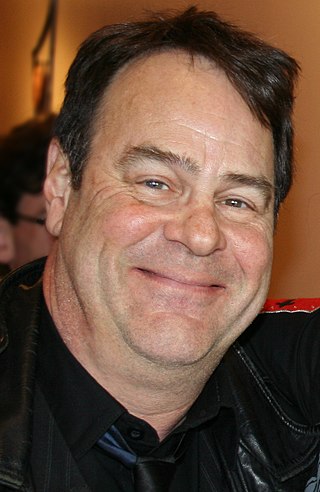
Daniel Edward Aykroyd is a Canadian and American actor, comedian, screenwriter, producer, and musician.
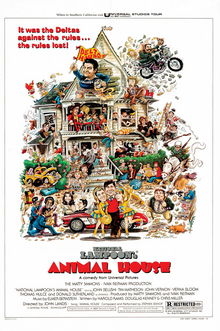
National Lampoon's Animal House is a 1978 American comedy film directed by John Landis and written by Harold Ramis, Douglas Kenney and Chris Miller. It stars John Belushi, Tim Matheson, John Vernon, Verna Bloom, Thomas Hulce and Donald Sutherland. The film is about a trouble-making fraternity whose members challenge the authority of the dean of the fictional Faber College.

The Blues Brothers are a fictitious American blues and soul revue band founded in 1978 by comedians Dan Aykroyd and John Belushi, who met and began collaborating as original cast members of Saturday Night Live.
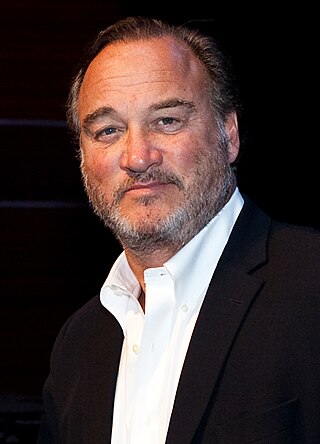
James Adam Belushi is an American actor. His television roles include the title role in According to Jim (2001–2009), Saturday Night Live (1983–1985), and Twin Peaks (2017).

John David Landis is an American filmmaker and actor. He is best known for the comedy films that he has directed – such as The Kentucky Fried Movie (1977), National Lampoon's Animal House (1978), The Blues Brothers (1980), An American Werewolf in London (1981), Trading Places (1983), Three Amigos (1986), Coming to America (1988) and Beverly Hills Cop III (1994), and for directing Michael Jackson's music videos for "Thriller" (1983) and "Black or White" (1991).
House of Blues Entertainment, LLC. is an American chain of live music concert halls and restaurants. It was founded by Isaac Tigrett, the co-founder of Hard Rock Cafe, and Dan Aykroyd, co-star of the 1980 film The Blues Brothers. The first location opened at Harvard Square in Cambridge, Massachusetts on November 26, 1992. The chain has been a division of Live Nation Entertainment since July 2006, and there are 11 locations throughout the United States as of July 2020.
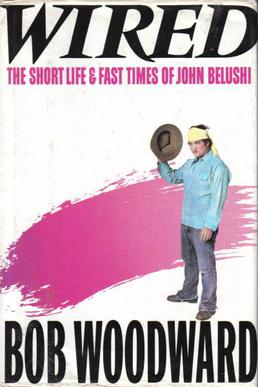
Wired: The Short Life and Fast Times of John Belushi is a 1984 non-fiction book by American journalist Bob Woodward about actor and comedian John Belushi. The hardcover edition includes 16 pages of black-and-white photos, front and back.

The Bluesmobile is a 1974 Dodge Monaco sedan that was prominently featured in the 1980 Universal Pictures film The Blues Brothers. The car is described as a decommissioned Mount Prospect police car, purchased by Elwood Blues at an auction after he had traded a previous car for a microphone. The Bluesmobile is equipped with a "440 Magnum" engine and squad car package, an option offered by Dodge for the Monaco in 1974. It bears an Illinois license plate reading "BDR 529", a tribute to the Black Diamond Riders motorcycle club of Toronto, Canada. Dan Aykroyd, co-writer of the film, stated that he chose the 440 Dodge Monaco because he considered it to be the hottest car used by police during the 1970s.
It's got a cop motor, a 440-cubic-inch plant. It's got cop tires, cop suspension, cop shocks. It's a model made before catalytic converters so it'll run good on regular gas.

Wired is a 1989 American biographical film of comedian and actor John Belushi, directed by Larry Peerce. It was based on the 1984 book of the same name by Washington Post journalist Bob Woodward, and adapted for the screen by Buckaroo Banzai creator Earl Mac Rauch. It stars Michael Chiklis in his film debut as Belushi. Wired was both a critical and a commercial failure. The film has yet to be released on DVD or Blu-ray, and the videocassette originally released by International Video Entertainment is out of print.
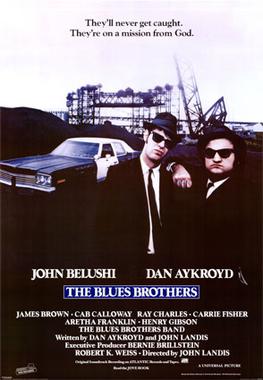
The Blues Brothers is a 1980 American musical action comedy film directed by John Landis. It stars John Belushi as "Joliet" Jake Blues and Dan Aykroyd as his brother Elwood, characters developed from the recurring musical sketch "The Blues Brothers" on NBC's variety series Saturday Night Live. The script is set in and around Chicago, Illinois, where it was filmed, and the screenplay is by Aykroyd and Landis. It features musical numbers by singers James Brown, Cab Calloway, Aretha Franklin, Ray Charles and John Lee Hooker. It features non-musical supporting performances by Carrie Fisher and Henry Gibson.
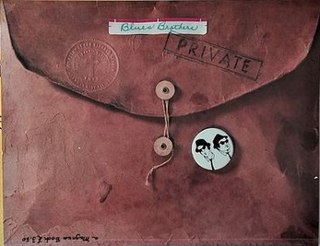
Blues Brothers: Private is a book published in 1980, designed to help flesh out the universe in which The Blues Brothers took place. Private was written and designed by John Belushi's wife, Judith Jacklin, and Tino Insana, a friend of John's from their days at The Second City.

Neighbors is a 1981 American black comedy film based on the novel of the same name by Thomas Berger. It was released through Columbia Pictures, was directed by John G. Avildsen, and starred John Belushi, Dan Aykroyd, Cathy Moriarty, and Kathryn Walker. The film takes liberties with Berger's story and features a more upbeat ending. The screenplay of the film is officially credited to Larry Gelbart, although it was extensively rewritten to Gelbart's public disapproval. Released two and a half months before Belushi's death, the film marks his last film performance.
Peter Aykroyd was a Canadian actor, comedian, and writer.

Briefcase Full of Blues is the debut album by the Blues Brothers, released on November 28, 1978, by Atlantic Records. It was recorded live on September 9, 1978, at the Universal Amphitheatre in Los Angeles, when the band opened for comedian Steve Martin. The album consists of covers of blues and soul songs from the 1950s to 1970s.
The Blues Brothers are a rhythm and blues band founded in 1978 by comedians Dan Aykroyd and John Belushi in character as Elwood and Jake Blues.
George "Murphy" Dunne is an American actor and musician. He played "Murph", the keyboardist for the Blues Brothers, in the 1980 film The Blues Brothers, a role he reprised in the sequel, Blues Brothers 2000.

Best of the Blues Brothers is the fourth and final Blues Brothers album released before John Belushi's death in 1982. It is the first compilation album by the band and it was released by Atlantic Records on November 30, 1981. Along with tracks from the first three albums, Briefcase Full of Blues, The Blues Brothers: Music from the Soundtrack and Made in America, it includes unreleased live versions of "Everybody Needs Somebody to Love", "Rubber Biscuit", and a new song, "Expressway to Your Heart". The album was remixed by Steve Jordan and Donald “Duck” Dunn. Belushi’s wife, Judith Jacklin, designed the sleeve.
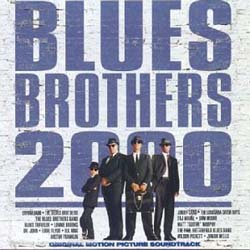
Blues Brothers 2000: Original Motion Picture Soundtrack is a soundtrack album that features the Blues Brothers. It is a soundtrack album to the 1998 film, Blues Brothers 2000, the sequel to the 1980 film, The Blues Brothers.

The Very Best of The Blues Brothers is a 1995 greatest hits album by The Blues Brothers. It is one of several compilations of the band's recordings, following Best of The Blues Brothers (1981) and Dancin' wid da Blues Brothers (1983).
















